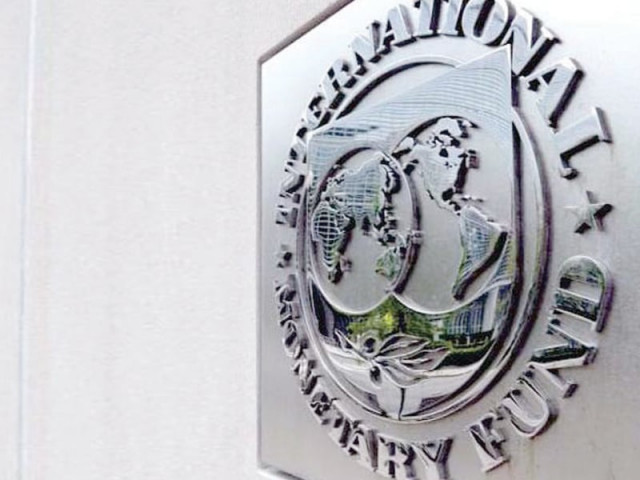Austere measures: Budget deficit stands below Rs2 trillion target
Support came from Rs48b savings by provinces, lower development spending.

Under an IMF agreement, Pakistan is required to slash the budget gap by 2.8 percentage points or Rs733b this year to bring it down to 6%. Following improved numbers, the govt may have got some breathing space now. PHOTO: FILE
Budget deficit in the last fiscal year is expected to have remained below the revised estimate of Rs2 trillion after provinces saved Rs48 billion and development spending fell short of annual targets because of a ban imposed by the Election Commission of Pakistan ahead of May 11 polls.
The lower budget deficit may help the new government to achieve this year’s ambitious deficit target of 6% of gross domestic product or Rs1.572 trillion.
Under an IMF agreement, the government is required to slash the budget gap by 2.8 percentage points or Rs733 billion this year to bring it down to 6%. Following improved numbers, the government may have got some breathing space now.
The four provinces saved over Rs48 billion in fiscal year 2012-13 that ended on June 30, according to officials of the Ministry of Finance. Though the savings are below the federal government’s target of Rs80 billion, they are more than expectations keeping in view the provinces’ spending spree before the May 11 general elections.

Punjab notched a budget surplus of Rs20 billion, followed by Balochistan Rs15 billion and Khyber-Pakhtunkhwa Rs9 billion. Sindh saved only Rs4 billion, according to the officials.
The budget savings seem encouraging as the Federal Board of Revenue fell short of the revenue target by Rs440 billion last year. Almost 90% of provincial incomes come from federal tax collection as their own revenue generation is almost negligible. The provinces get 57.5% of federal taxes as their share under the seventh National Finance Commission Award.
The savings will help reduce the overall budget deficit by 0.2%. For the last fiscal year, the PPP government had initially set the deficit target at Rs1.1 trillion or 4.7% of GDP. However, revised estimates of the finance ministry put the gap at Rs2.015 trillion or 8.8% of GDP.
According to the ministry officials, final figures will be released soon but indications are that the deficit will stand lower than the revised estimate due to savings by provinces and reduced development spending.
For the current fiscal year that started in July, the federal government requires the provinces to save Rs117 billion from their budgets. The centre has sought approval of the Council of Common Interests for such savings, as desired by the IMF.
Cumulative development spending by the federal government and provinces stood below the target of Rs875 billion in the previous fiscal year after the ECP imposed a ban on development spending. The ECP move came amid reports that former prime minister Raja Pervaiz Ashraf was using taxpayers’ money to lure voters.
The ban slowed down release of funds for development projects. Apart from this, the caretaker government stopped all types of discretionary and development spending https://tribune.com.pk/wp-content/uploads/2013/06/559053-IMFPhotoFile-1370408714-939-640x480.jpg during its brief tenure, which was another factor that restricted the budget deficit.
Finance ministry spokesman Rana Assad Amin confirmed that the budget deficit stood below the revised estimate but said final figures had not been compiled yet.
Owing to higher than the original deficit target, the federal government heavily borrowed from the State Bank of Pakistan and commercial banks in the last fiscal year to keep itself afloat in the wake of a significant fall in tax revenues.
The huge borrowings are expected to fuel inflation this year due to about six-month time lag in printing of currency notes and its impact on inflation, according to independent economists.
The government borrowing left little credit for expansion of the private sector, which, coupled with energy shortages, slowed down industrial growth, they added.
Published in The Express Tribune, August 6th, 2013.
Like Business on Facebook, follow @TribuneBiz on Twitter to stay informed and join in the conversation.


















COMMENTS
Comments are moderated and generally will be posted if they are on-topic and not abusive.
For more information, please see our Comments FAQ